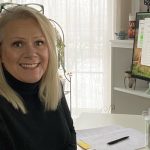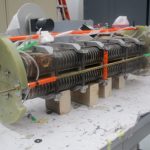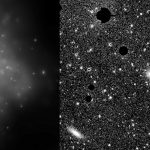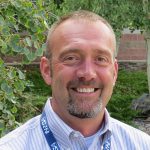A veteran administrator with a love of flowers and true crime, Maxine Hronek draws on three decades of Fermilab experience to keep the international Deep Underground Neutrino Experiment running smoothly behind the scenes — and remind people that science takes the efforts of a whole community of dedicated individuals.
Author Archive
Faint light from rogue stars not bound to galaxies has been something of a mystery to scientists. The dimness of this intracluster light makes it difficult to measure, and no one knows how much there is. Scientists on the Dark Energy Survey, led by Fermilab, have made the most radially extended measurement of this light ever and have found new evidence that its distribution might point to the distribution of dark matter.
From Forbes, Jan. 22, 2021: Fermilab scientist Don Lincoln describes recent findings of scientists studying an unexplained excess of hard X-rays emanating from neutron stars. The explanation for the excess could lie in a hypothesized dark matter candidate called the axion.
From ENR, Jan. 18, 2021: The upcoming two-story Integrated Engineering Research Center will provide Fermilab staff and users with highly modular, flexible working environment. In its plan, the architecture team sought to maximize flexibility for wherever science may take particle physics over the next 50 years.
From Avvenire, Jan. 19, 2021: Experiments around the world are working to solve mysteries to which neutrinos could hold the answer. Among them is the international Deep Underground Neutrino Experiment, hosted by Fermilab.
From the University of Chicago, Jan. 19, 2021: The Polsky Center for Entrepreneurship and Innovation recently launched the Compass – a first-of-its-kind deep tech accelerator program for early-stage startups and technologies. The Polsky Center will select the most promising startups and technologies out of the University of Chicago, Argonne National Laboratory, and Fermi National Accelerator Laboratory and provide robust resources to help those companies get launched and be investor-ready in six months.
From Forbes, Jan. 14, 2021: The Dark Energy Survey recently publicly released an enormous amount of data for anyone to use. This data set contains nearly seven hundred million individual astronomical objects. Fermilab scientist Don Lincoln explains how collaborators on the Dark Energy Survey study the history of the universe and highlights a number of the scientific findings in DES’s rich trove of data.





